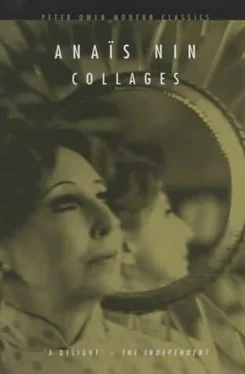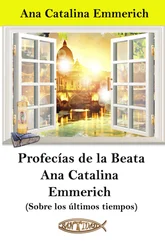VIENNA WAS THE CITY OF STATUES. They were as numerous as the people who walked the streets. They stood on the top of the highest towers, lay down on stone tombs, sat on horseback, kneeled, prayed, fought animals and wars, danced, drank wine and read books made of stone. They adorned cornices like the figureheads of old ships. They stood in the heart of fountains glistening with water as if they had just been born. They sat under the trees in the parks summer and winter. Some wore costumes of other periods, and some no clothes at all. Men, women, children, kings, dwarfs, gargoyles, unicorns, lions, clowns, heroes, wise men, prophets, angels, saints and soldiers preserved for Vienna an illusion of eternity.
As a child Renate could see them from her bedroom window. At night, when the white muslin curtains fluttered out like ballooning wedding dresses, she heard them whispering like figures which had been petrified by a spell during the day and came alive only at night. Their silence by day taught her to read their frozen lips as one reads the messages of deaf mutes. On rainy days their granite eye sockets shed tears mixed with soot.
Renate would never allow anyone to tell her the history of the statues, or to identify them. This would have situated them in the past. She was convinced that people did not die, they became statues. They were people under a spell and if she were watchful enough they would tell her who they were and how they lived now.
Renate’s eyes were sea green and tumultuous like a reduction of the sea itself. When they seemed about to overflow with emotion, her laughter would flutter like windchimes and form a crystal bowl to contain the turquoise waters as if in an aquarium, and then her eyes became scenes of Venice, canals of reflections, and gold specks swam in them like gondolas. Her long black hair was swept away from her face into a knot at the top of her head, then fell over her shoulders.
Renate’s father built telescopes and microscopes, so that for a long time Renate did not know the exact size of anything. She had only seen them diminutive or magnified.
Renate’s father treated her like a confidante, a friend. He took her with him on trips, to the inauguration of telescopes, or to ski. He discussed her mother with her as if Renate were a woman, and explained that it was her mother’s constant depression which drove him away from home.
He relished Renate’s laughter, and there were times when Renate wondered whether she was not laughing for two people, laughing for herself but also for her mother who never laughed. She laughed even when she felt like weeping.
When she was sixteen she decided she wanted to become an actress. She informed her father of this while he was playing chess, hoping that his concentration on the game would neutralize his reaction. But he dropped his king and turned pale.
Then he said very coldly and quietly: “But I have watched you in your school plays and I do not think you are a good actress. You only acted an exaggerated version of yourself. And besides, you’re a child, not a woman yet. You looked as if you had dressed up in your mother’s clothes for a masquerade.”
“But, Father, it was you who once said that what you liked about actresses was that they were exaggerated women! And now you use this very phrase against me, to pass judgment on me.”
Renate spoke vehemently, and as she spoke her sense of injustice grew magnified. It took the form of a long accusation.
“You have always loved actresses. You spend all your time with them. I saw you one night working on a toy based on an interplay of mirrors. I thought it was for me. I was the one who liked to look through kaleidoscopes. But you gave it to an actress. Once you would not take me to the theater, you said I was too young, yet you took a girl from my school, and she showed me all the flowers and candy you sent her. You just want to keep me a child forever, so I will stay in the house and cheer you up.”
She did not talk like a child angry that her father did not believe in her talent, but like a betrayed wife or mistress.
She stormed and grew angrier until she noticed that her father had grown paler, and was clutching at his heart. Frightened, she stopped herself short, ran for the medicine she had seen him take, gave him the drops, and then kneeled beside him and said softly: “Father, Father, don’t be upset. I was only pretending. I was putting on an act to prove to you that I could be a good actress. You see, you believed me, and it was all pretence.”
These words softly spoken, revived her father. He smiled feebly and said: “You’re a much better actress than I thought you were. You really frightened me.”
Out of guilt she buried the actress. It was only much later she discovered that her father had long been ill, that she had not been told, and that it was not this scene which had brought on the first symptoms of a weak heart.
In every relationship, sooner or later, there is a court scene. Accusations, counter-accusations, a trial, a verdict.
In this scene with her father, Renate condemned the actress to death thinking that her guilt came from opposing his will. It was only later that she became aware that this had not been a trial between father and daughter.
She had, for a few moments, taken the place of her mother and voiced accusations her mother had never uttered. Her mother had been content to brood, or to weep. But Renate had spoken unconsciously a brief for an unloved wife.
It had not been the rebellion of a daughter against a father’s orders she felt guilty of, but her assuming what should have been her mother’s role and place in her father’s heart.
And her father too, she knew now, had not been hurt by a daughter’s rebellion, but by the unmasking of a secret: he had not looked upon Renate as a daughter but as a woman, and his insistence on maintaining her a child was to disguise the companionship he enjoyed.
After this scene, Renate’s father searched for a tutor because Renate had at the same time refused to continue to go to school.
He had a brother who had refused to go to school and had locked himself up in his room with many books. He only came out of it to eat and to renew his supply of books. At the end of seven years he came out and passed his examinations brilliantly and became a professor.
He indulged in one gentle form of madness which did not affect his scholarly and philosophical knowledge. He insisted that he had no marrow in his bones.
Renate’s father thought that his brother would be a good tutor for Renate. He could teach her music, painting, and languages. It would help to keep her at home, away from the influence of other girls. But he explained the professor’s obsession to her, and stressed clearly that she must never refer to bones or marrow as it ignited his irrational obsession.
Renate was naturally strongly tempted to discuss this very mystifying theme, and the marrow madness of her uncle interested her far more than anything else he might teach her.
She spent many days trying to find a tactful way to introduce this theme in their talks together. She did some preparatory research in the library. She discovered that birds have no marrow in their bones. She bought her uncle a canary with a coloratura voice and said: “Did you know that birds do not have marrow in their bones?”
“Yes,” said her uncle, “but neither have I.”
“How marvelous,” said Renate, “that means that you can fly!”
Her uncle was impressed but would not put himself through the test. For fear she might urge him to explore this new concept, he never referred to his handicap again. But before adopting complete silence on this subject he offered her a rational explanation of its cause.
Читать дальше













